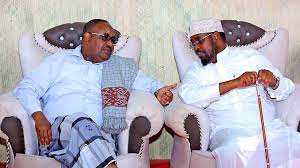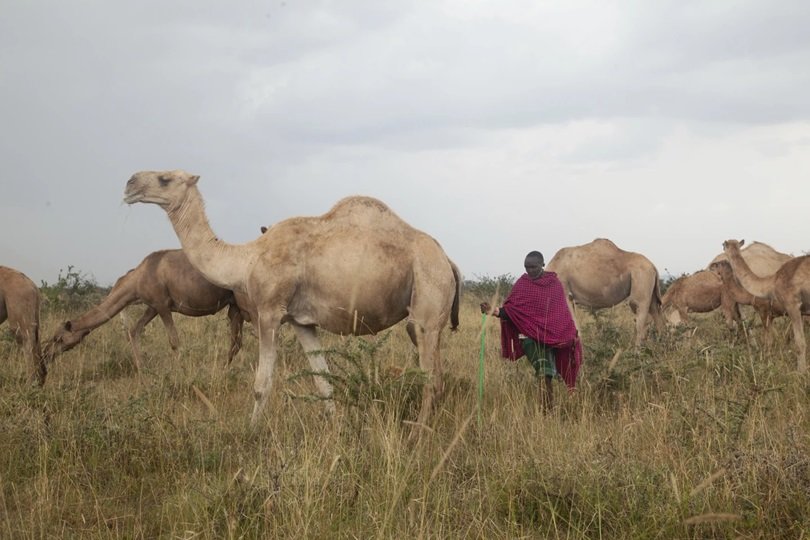By Abdullahi Ahmed Nor
President Hassan’s style of governance has often been described as unilateral, characterized by a steadfast determination to “not stop for or listen to anyone.” This approach, which some liken to monarchical rule, allows him to wield considerable control over the federal parliament and the executive branch. Critics assert that this centralizing style has led to a pattern of rejecting dialogue initiatives, creating a growing rift between the federal government and FMS leaders who feel marginalized. With Puntland and Jubaland—the two most politically influential FMS—distancing themselves, Hassan now appears at a critical political impasse.

President Hassan’s isolation deepened further following his unilateral extension of mandates for the leaders of South West State, Hirshabelle, and Galmudug federal member states by one year—a move widely denounced as unconstitutional. This extension, which bypassed the necessary federal consensus, has drawn strong condemnation from Jubaland, Puntland , and Somalia’s opposition leaders, including former Presidents Mohamed Abdullahi Farmajo and Sheikh Sharif Ahmed, former Prime Minister Hassan Ali Khayre, and Hon. Abdirahman Abdishakur. They warned that this decision risks plunging the country into further instability, potentially opening opportunities for groups like Al-Shabaab to exploit Somalia’s political turmoil.
In a surprising pivot, President Hassan Sheikh Mohamud has extended an offer to initiate a reconciliation campaign with the leaders of Puntland and Jubaland federal member states (FMS), a call that is not a genuine but an interest driven. However, the circumstances surrounding this offer reveal the president’s growing isolation, as the recent National Consultative Council (NCC) meeting concluded without a sensible communique, and with the absence of two FMS – Puntland and Jubaland. These two pivotal states have opted out of the NCC in opposition to President Hassan’s increasingly centralized approach, which they argue violates Somalia’s provisional federal constitution.
President Hassan is acting as a person with multiple personalities. While calling for a reconciliation, on the other hand he is going ahead with his unilateral and unconstitutional agenda. On Thursday 31st Oct, President Hassan is set to present the revised election-related bills and his handpicked election commission to parliament for approval. Critics view this move as a strategy to entrench his authority, leveraging a “rubber-stamp” parliament to legitimize his agenda. The opposition fears that Hassan’s actions, aimed at further consolidating power, could erode Somalia’s federal framework and spark civil unrest.

Puntland’s President Said Abdullahi Deni has highlighted the importance of adhering to Somalia’s provisional federal constitution and has consistently pushed for meaningful dialogue to address longstanding tensions with the federal government. At the recent Puntland Development and Research Center (PDRC) summit, Deni expressed concerns that, without genuine political engagement, Somalia risks further fragmentation along the lines of Somaliland’s secession.
Puntland’s most recent indirect presidential election—conducted on schedule and free from federal interference—demonstrates its commitment to constitutional governance and regional autonomy. Deni’s approach stands in contrast to President Hassan’s centralization drive. With Jubaland poised to hold its own presidential election in November, both states are underscoring their commitment to the constitutional order, advocating for a federal system that respects regional autonomy.
President Hassan’s resistance to regional autonomy has been a consistent theme throughout his administration. Puntland’s calls for dialogue echo previous reconciliation offers extended by former Presidents Sharif Sheikh Ahmed and Mohamed Abdullahi Farmaajo—offers that were met with resistance from Hassan, who viewed them as undermining federal authority. Recently, Hassan further strained relations by appointing a new police commissioner known to be a rival of President Deni, underscoring his reluctance to engage meaningfully with Puntland’s leadership.
For both Puntland and Jubaland, the central government’s insistence on a “one person, one vote” system that is naked from FMS consensus, is perceived as a mechanism to concentrate power within the federal government. This stance, combined with the mandate extensions, has heightened tensions between Hassan’s administration and the FMS.
Unity Through Resistance: Opposition to Hassan’s Mandate Extensions
In a rare display of solidarity, Puntland and opposition forces rallied in support of Jubaland President Ahmed Islam Madobe’s stance to reject the federal government’s mandate extension. This public endorsement underscores growing opposition to Hassan’s attempts to override constitutional processes and reinforce centralized control. Leaders from across Somalia, including opposition heavyweights like former Presidents Farmajo and Sheikh Sharif, have commended Madobe’s defiance, viewing it as a defense of Somalia’s federal principles.

President Hassan’s recent offer for reconciliation, seen by many as a last-ditch attempt to mend political fences, may represent a significant shift in his approach—or a continuation of past resistance. For Puntland and Jubaland, any meaningful engagement must involve respect for Somalia’s federal structure and regional autonomy, a foundation set forth by the provisional constitution. Both states have proven their commitment to transparent, constitutionally grounded governance, and now look to President Hassan to do the same.
With Puntland and Jubaland advocating for a federal approach rooted in constitutional principles, Somalia’s future may hinge on whether Hassan is willing to reconsider his centralizing tendencies. As the Somali political landscape stands at this critical juncture, Puntland and Jubaland lead by example, advocating for unity built on constitutional adherence and mutual respect.
Conclusion: Somalia’s Path Forward – Unity or Divergence?
President Hassan Sheikh Mohamud’s reconciliation offer marks a critical juncture in Somalia’s fraught political landscape. His centralizing approach and unilateral mandate extensions have strained relations with federal member states and opposition leaders, pushing the country towards a potential crisis. However, Puntland and Jubaland, through their commitment to constitutional adherence and autonomous governance, have demonstrated that an alternative path—one rooted in the federal framework—is viable for Somalia’s stability.
For Somalia to move forward, President Hassan’s administration must weigh the benefits of embracing a genuinely federal system that respects regional autonomy. This would require meaningful engagement with Puntland, Jubaland, and other federal states to address their legitimate grievances and uphold the constitution. The alternative—continued centralization—risks further fragmentation, potentially fueling instability and providing a foothold for Al-Shabaab and other destabilizing forces.
As the political landscape stands on this precipice, Somalia’s future depends on the willingness of its leaders to foster dialogue, respect the constitutional order, and recognize the value of a federal system that honors both national unity and regional diversity. If embraced, this moment could transform from a last-ditch effort into a turning point for Somalia’s governance and stability.
Abdullahi Ahmed Nor
Email: abdulahinor231@gmail.com


Leave a Reply